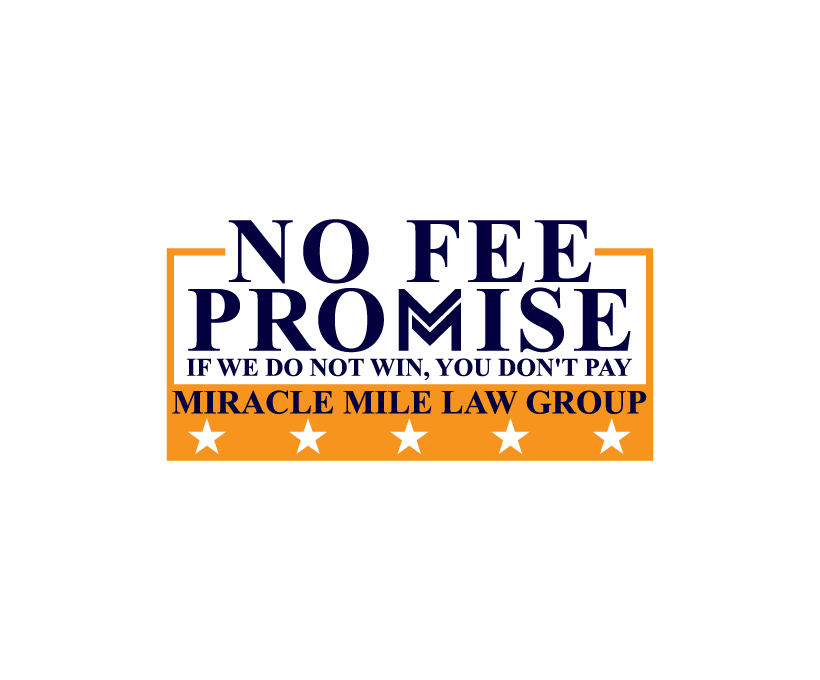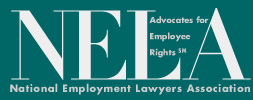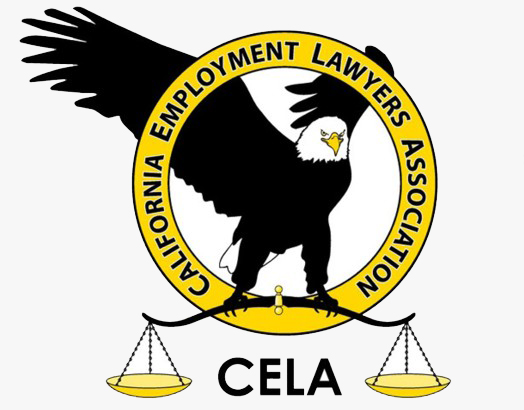Disability Discrimination
The lawyers at Miracle Mile Law Group are specially trained in handling disability discrimination lawsuits.
Los Angeles Disability Discrimination Lawyer
Unfortunately, disabilities are a grim reality of life, whether they be physical or mental. Even more so when the disability impairs your work life. Fortunately, employees in California are given the utmost protection from Disability Discrimination. Both Federal and California state law as recognized the right to lead a meaningful and purposeful life at work free from discrimination.

Both Federal and State law offer significant protections for employees against disability discrimination.
State Law
Under California law, the Fair Employment and Housing Act (“FEHA”) prevents employers from taking certain actions against disabled employees. In order to hold an employer liable for disability discrimination at work under the FEHA, a few things need to be satisfied.
First, you must determine whether your disability is recognized under the FEHA statute. Usually, most physical disabilities such as blindness and paraplegia are recognized disabilities; some mental disabilities, such as anxiety and clinical depression are also recognized under FEHA. See below for a full list of disabilities that qualify under FEHA.
Second, the employer must have either been given notice of the disability. Fortunately, this does not mean that you must have directly informed your supervisor of your disability. So long as your disability was known (or should have been known) to your employer through observation or notice from a third party, that would be sufficient.
Third, the employer must provide you with reasonable accommodations so that you can perform the essential functions of your job. Note that the employer is not required to do so if he can prove that the accommodation would impose an undue hardship on the business operation or would severely endanger the health of other employees. If you are not sure whether your requested accommodation qualifies as an “undue hardship,” contact us today.
Federal Law
There are also several Federal laws that protect employees with disabilities from discrimination. The most notable one is the Americans with Disabilities Act (“ADA”). The ADA is very similar to FEHA in its protections, aside from a few key differences:
- Covered Employers: Under the ADA, all employers in the private sector with 15 more or more employees are covered while under the FEHA, employers with 5 more or more employees are covered.
- Degree of Disability: The ADA requires that the physical or mental impairment substantially limit the major life activity, while there is no such requirement under FEHA. In other words, FEHA is much broader when it comes to covering certain physical and mental disabilities.
- Limit on Damages: under the ADA, damages are limited to compensatory and punitive damages while under the FEHA there are no caps on civil damages.
In California, a person is considered disabled if he or she exhibits one or more of the following characteristics:
- Has a physical or mental impairment that limits one or more of the major life activities
- Has a record of an impairment
- Is regarding as having an impairment
- Is regarded or treated by the employer as having a condition that is not presently disabling but may become a physical disability
- Has any health impairment that requires special education or related services
The definition of “disability” in California includes:
(1) Mental disabilities that limit a major life activity. Examples include:
-
- Emotional or mental illnesses
- Cognitive disabilities
- Clinical depression
- Bipolar disorder
- Autism spectrum disorders
- Schizophrenia
- Post-traumatic stress disorder
- Obsessive compulsive disorder
(2) Physical disabilities, including, but not limited to, having any anatomical loss, cosmetic disfigurement, or physiological disease, disorder or condition that does both of the following:
(a) Affects one or more of the following body systems: neurological, immunological, musculoskeletal; special sense organs; respiratory, including speech organs; cardiovascular; reproductive; digestive; genitourinary; hemic and lymphatic; circulatory; skin; and endocrine; and
(b) Limits a major life activity
Examples of physical disabilities include blindness, deafness, missing limbs, mobility impairments, cerebral palsy and conditions such as HIV/AIDS, hepatitis, epilepsy, diabetes, multiple sclerosis and heart disease.
(3) Special Education disabilities, such as significant difficulties in the use of listening, speaking, reading, writing, reasoning or mathematical abilities. Examples of special education disabilities include: brain injury, dyslexia, and developmental aphasia.
(4) A record or history of disability. This includes individuals who may not be currently disabled, but who previously suffered an impairment.
(5) Perceived disabilities. Individuals may fall into this category if their employers regard them as having or having had a physical or mental condition that has no present disabling effect, but which may become a disability in the future.
(6) Medical conditions, including cancer-related impairments or genetic characteristics that put an individual at increased risk for disease or disorder
Associated Disability Claims – Employers are also prohibited under both FEHA and the ADA from discriminating against an employee because of his or her association with a person who has, or is perceived to have, a disability.
- Not all disabilities or illnesses are protected under FEHA, while some are specifically excluded by statute. Some common examples of disabilities that are not protected include:
- Common cold
- Influenza
- Sprains
- Bruises
- Soreness
- Small cuts
- Kleptomania
- Compulsive Gambling
- Pyromania
State and federal disability laws require covered employers to reasonably accommodate an employee’s disability if the employer knows of the disability. However, no accommodation is required if the employer can demonstrate that the accommodation would impose an undue hardship.
What is a “reasonable accommodation?”
A “reasonable accommodation” is any modification or adjustment in a job that allows an individual with a disability to enjoy an equal employment opportunity. It can also be any modification or adjustment that is effective in enabling an employee to perform the essential functions of the job. However, what is reasonable depends on the nature of the work the employee is engaged in. Therefore, what is reasonable is up for debate.
When is my employer required to provide a reasonable accommodation?
Even before providing reasonable accommodations, the employer is required to engage in something called the “interactive process.” This is done as soon as an employer is made aware of the employee’s qualifying disability, either directly or through observation or by a third party. Next, the employer and the employee will exchange essential information to determine what type of accommodation is reasonable to allow the employee to perform the essential functions of his or her job. An employer is not required to make any modification, adjustment or change to a job or policy that would fundamentally alter the essential functions of the job.
During the interactive process, the employer must timely, and in good faith, grant the employee’s requested accommodation or reject it after careful consideration. They must then initiate discussion with the employee regarding alternative accommodations. The employer must also request medical documentation, but may not ask about the underlying medical causes of the disability. The employer may, however, request a second opinion.
The employee must provide medical documentation to prove the existence of a physical or mental disability. In some circumstances, the employee may be required to provide certain information, such as educational background, to determine whether alternative accommodations are necessary. Call one of our disability discrimination lawyers today to find out whether your boss is illegally denying accommodations.
If your employer fails to provide you with reasonable accommodations, or fails to engage in the interactive process with you, you may be entitled to compensation and to bring a lawsuit for “Failure to Provide Reasonable Accommodations” and “Failure to Engage In The Interactive Process.“
The term “reasonable accommodation” includes, but is not limited to:
- Providing personal assistants or attendants to help a qualified individual with a disability perform an essential job function;
- Making existing job facilities used by employees readily accessible to and usable by disabled individuals (this may include providing accessible break rooms or restrooms, or reserving parking spaces)
- Job restructuring
- Part-time or modified work schedules
- Reassignment to a vacant position for which the individual is qualified
- Acquiring or modifying equipment or devices
- Modifying examinations, training materials or policies
- Providing assistive aids such as qualified readers or interpreters
- An unpaid extension of a paid or unpaid leave
- Allowing employees to bring assistive animals to the worksite
- Changing supervisory methods (e.g., dividing complex tasks into smaller parts)
- Providing additional training
- Permitting an alteration of when and/or how an essential function is performed
- Providing an adjustment or modification of examination, training materials or policies
- Modifying an employer policy
- Working from home
Reasonable accommodation does not require your boss to:
- Find a different position for an applicant who is not qualified for the position he or she originally sought
- Lower quality or quantity standards to make an accommodation
- Provide personal use items, such as glasses or hearing aids
For a more detailed discussion on this question, visit our blog post entitled, How to Ask for Work Accommodations If You Are Injured
Unfortunately, this happens very frequently. If your boss has refused to accommodate your disability, you may have a lawsuit on your hands. Failure to reasonably accommodate an employee is against the law, and an employee may be able to recover damages. An employee can also bring a claim for failure to engage in the interactive process.
Additionally, under FEHA, the mere act of requesting a reasonable accommodation is protected activity and an employer cannot discriminate or retaliate against a person for requesting the accommodation – regardless of whether the request was granted. See Failure to Accommodate claims.
Some Questions You May Be Asking Yourself
- Can my boss retaliate against me for requesting an accommodation that he does not like?
- What should I do if my boss is forcing me to perform job duties that are in violation of my work restrictions?
- Can my boss fire me for having ADD?
Statute of Limitations
A statute of limitations refers to the amount of time you have to file a lawsuit in a court of law. If you do not file within the time permitted of a statute of limitation, then you lose the chance to recover for your damages. Disability discrimination lawsuits have a statute of limitations.
What is the Statute of Limitations for a Disability Discrimination Lawsuit?
If you are suing for disability, you have 180 days from the date of last discriminatory act to obtain a right-to-sue letter from the Equal Employment Opportunity Commission (EEOC). After this you have 90 days to file suit in a court of law. On the other hand, the Department of Fair Employment and Housing (DFEH) gives you one year from date of last discriminatory act to obtain a right-to-sue letter. After obtaining the right-to-sue letter, the DFEH gives you another to file a lawsuit in State court. Therefore, your wrongful termination case is time sensitive, so you must act fast in contact a lawyer to preserve your rights.
What If the Time Has Passed for Me to File A Wrongful Termination Lawsuit?
In most cases, if you do not file a timely lawsuit within the statute of limitations, then there is no chance of recovery. However, there is one option that a skilled lawyer can pursue. This includes the Continuing Violations Doctrine. The Continuing Violation Doctrine may extend the one-year time period if the employee’s lawyer can prove that some of the employer’s conduct fell outside the one-year period AND the conduct was sufficiently linked to the conduct that does fall within the one-year period.
Here at Miracle Mile Law Group, we receive many questions surrounding disability discrimination. We will answer some of the most frequently asked questions from employees who face age discrimination, and share some guidance.
HAVING AN ATTORNEY BY YOUR SIDE GREATLY INCREASES THE CHANCE FOR RECOVERY
The lawyers at Miracle Mile Law Group are specially trained in handling disability discrimination lawsuits. If you believe you have been discriminated against because of your disability, or if your boss is unreasonably denying you the reasonable accommodations you are legally entitled to, give us a call at (888) 244-0706 or contact us online for a FREE case evaluation.
Services in Los Angeles




